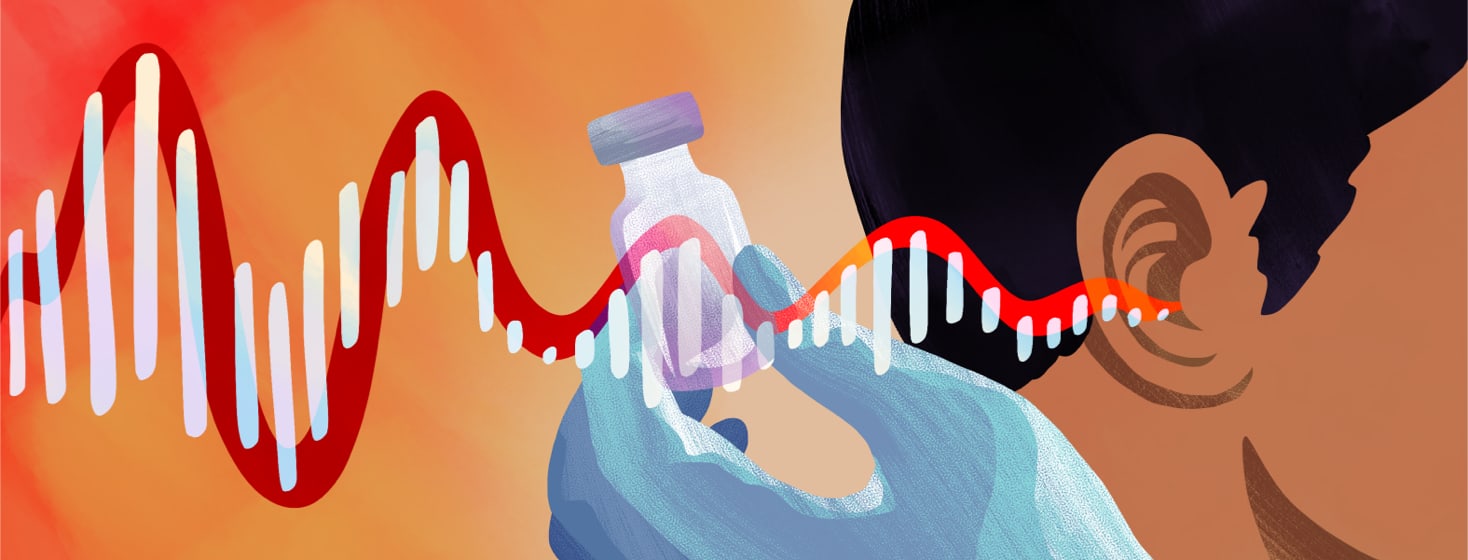The Chemo and Hearing Loss Connection
Chemotherapy (chemo) can be a life-saving treatment, but it also can come with serious side effects. Hearing loss is a potential side effect of some chemo drugs, most commonly platinum-based and taxane drugs. Monitoring your hearing can help detect any changes early.1,2
For many people, hearing loss stemming from chemo is mild and does not impact daily life. There are limited treatments that can reverse hearing loss, but your doctor may suggest ways to manage symptoms. They also may suggest changing your cancer treatments.1,3
Why do chemotherapy drugs cause hearing loss?
The chemo drugs most likely to cause hearing loss include:1–3
- Platinol® (cisplatin)
- Paraplatin® (carboplatin)
- Taxol® (paclitaxel)
- Taxotere® (docetaxel)
Over half of cancer survivors treated with these drugs experience hearing loss. Experts do not know why hearing loss happens.3–5
But these drugs may cause permanent damage to inner ear cells. They also may damage the nerves outside your brain and spinal cord – a condition called peripheral neuropathy.3–5
Certain risk factors increase your chances of hearing loss. For example, higher doses of chemo drugs are more likely to cause hearing problems. Combining them with radiation therapy to the brain can also increase the risk. Other conditions and medicines also can lead to hearing loss.3
What are symptoms of hearing loss?
Many people are not aware that hearing loss can be a side effect of chemotherapy, so they do not monitor their hearing. They may underestimate their hearing loss or not notice hearing loss over time.4
Talk to your doctor about your risk and how to evaluate your hearing. The best way to diagnose hearing loss is through hearing tests (audiograms). Your hearing test results after treatment can be compared to your test results before treatment. Unfortunately, many people do not get hearing tests before treatment.1,3
Your doctor can also discuss symptoms to monitor. Common symptoms include:2,3
- Ringing in the ears (tinnitus)
- Feeling lightheaded
- Nausea or vomiting
- Vertigo (spinning or off-balance feeling)
- Noticing voices sound different or quieter
- Trouble hearing because of background noise
- Trouble hearing someone on the phone
- Trouble hearing high pitches
- Needing to turn the volume on devices very high
What are typical outcomes of hearing loss?
Hearing loss caused by chemo is often mild. It may only affect high-pitch hearing, outside the range of daily hearing. But hearing loss can be a challenging and disruptive side effect.1,3
While it may be mild, hearing loss caused by chemotherapy is often permanent. There are not many treatments that can reverse this hearing loss. This is why it is important to monitor your hearing. Recognizing changes to your hearing early can help prevent permanent damage.1,4
How is hearing loss managed?
The US Food and Drug Administration (FDA) has approved the drug Pedmark® (sodium thiosulfate) to treat chemo-related hearing loss in children. It is approved for children who have a solid tumor that has not spread.2,3,6
There are not yet any medicines for chemo-related hearing loss in adults. Talk to your doctor about how to manage hearing loss. They may suggest:1–3
- Steroids
- Hearing aids
- Cochlear (inner ear) implants
- Avoiding alcohol and caffeine, if they make tinnitus worse
- Drinking plenty of water
- Getting plenty of sleep and reducing stress
- Protecting your ears from loud noises
These treatments will not reverse hearing loss. But they can prevent damage and improve symptoms. Your doctor also may suggest changing your cancer treatment. This depends on many other factors, such as the nature of your cancer and other possible treatments.1,3
More research on hearing loss caused by chemo drugs is needed. Understanding why it happens can help inform possible treatments. For example, treatments that block peripheral neuropathy may work to treat hearing loss. Antioxidants or anti-inflammatory medications may also have benefits.2,4

Join the conversation